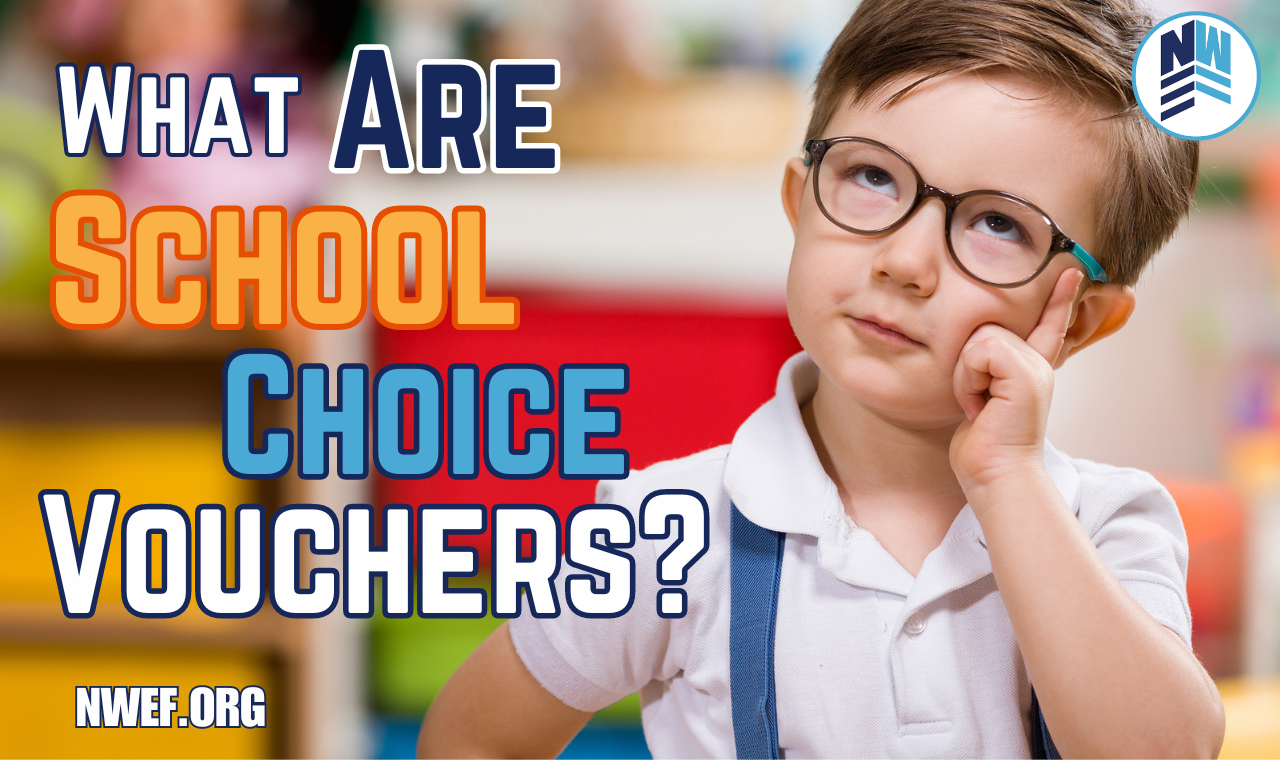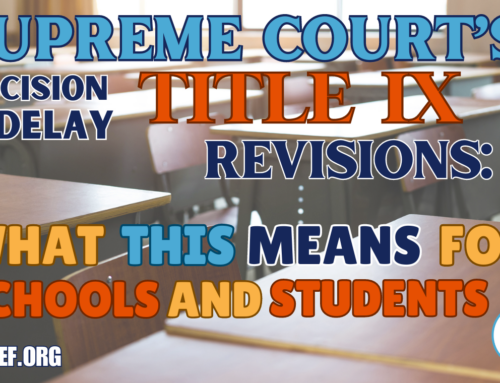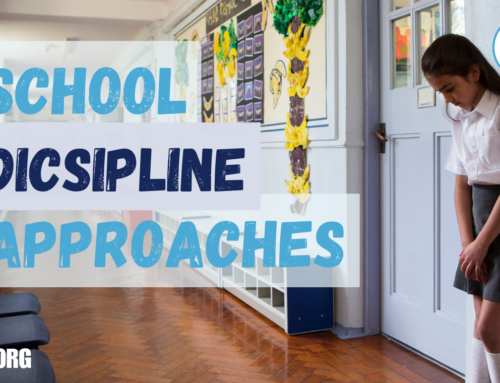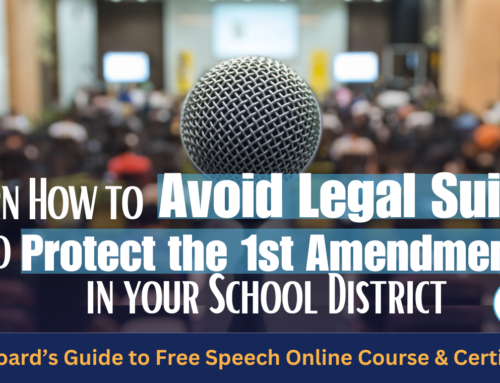
Today we’re continuing our school choice series with (you guessed it!) a deep-dive into school vouchers. Be sure to check out our earlier installments, including this giant list of American school options and this in-depth explanation of ESAs.
School vouchers have been the topic of many recent news stories and controversies. Many bills are being passed right now, creating official state government voucher programs across the country. But these bills are also fiercely opposed by many people, fueling nation-wide debates on the rights and wrongs of school choice vouchers.
You’ve probably heard of them, but do you know what vouchers are and what they do? If not, then it’s time we go back to the beginning and explore what exactly school vouchers are, and how they impact school choice.
What are School Vouchers, and What Do They Have to Do With School Choice?
These vouchers give parents access to some (or all) of the money that would normally be used for the child’s public education. The parents can then take that money and use it towards a non-public education option for their child.
The National School Boards Association puts it a different way: “School vouchers are education tax dollars that are diverted from public schools to help subsidize the tuition of private and religious schools.”
EdChoice expands on the answer: “Residents in each state—and communities within that state—pay income taxes, sales taxes or both. Those funds become the revenue the state uses to pay for education. Under a voucher program, the state distributes the money the state already allocated for an individual student’s public education to that student’s family.”
You can see how this has a huge impact on school choice! Now families who want to make the switch to private school or have limited income have the potential to give their kids an education of their own choosing instead of fully relying on government schools to educate their children.
How the Voucher System Works
Did you know school choice vouchers have been around for about 30 years? School vouchers were first instituted in Milwaukee, Wisconsin, in 1990.
However, school vouchers have only just begun to make waves in the education arena. In the months following the upheaval of COVID-19 and the school controversies, many states have implemented voucher programs. In fact, in 2022 alone, “32 new or expanded school choice policies were enacted in 19 states” according to Forbes, many of which were voucher programs.
These days, with the surge of demands to open up school choice for all U.S. families, some governors have taken the initiative to sign voucher bills into law. Although some anti-school choice officials have tried to stop the spread, such as in Arizona where the Secretary of State tried to veto Governor Doug Ducey’s voucher bill, this method has been very effective lately.
Another way for states to pass voucher bills is through the legislature. Recently a Utah voucher bill passed in the House and is currently awaiting the Senate’s verdict.
Now that we’ve seen the status of school choice vouchers in America, let’s talk about how you can apply for and use a voucher.
How to Apply for a Voucher
First, you’ll need to fully understand your state’s voucher program, if there is one. The American Federation for Children has a list on their website of all the voucher programs available in the U.S. They also name the programs available. Find your state, see what the program is called, and type that name into Google. For instance, the Arkansas program is called Succeed Scholarship Program, and one of Louisiana’s is Student Scholarships for Educational Excellence Program.
Once you’ve found the program’s web page, you’ll be able to see if your child qualifies. For instance, Arkansas’s program only covers children in foster care, children with disabilities, and children from military families. Some states’ programs only cover children with special needs. Others cover kids who are attending failing public schools. Very few school choice programs have universal eligibility (meaning anyone can apply), so it’s unlikely that you will be able to apply if you do not fit into one of these categories.
Again, seek out the information for yourself! You might be eligible and not know it.
Now that you’ve found all the info you need on your state’s program and you’re ready to apply, find out when and how you can fill out an application. Your state program’s website should tell you when applications will be open, and give you a link to the application form.
Once you’ve applied, all you can do is wait to be approved!
FAQ: Can I Get a Homeschooling Voucher?
Not yet. There aren’t any state school voucher programs that make funds available for homeschoolers.
That said, this was proposed by Donald Trump in his presidential campaign and may become a reality someday, though there are still many who have qualms about it.
This doesn’t mean that you’re entirely out of luck when it comes to getting help with funds for your homeschooling. A few states, such as Alaska, have state-funded correspondence programs which enable children to learn at home—some give parents quite a lot of rope when it comes to choosing curriculum. Most of America also has access to ESAs (Education Savings Accounts) which can also be used to fund homeschooling.
Controversy
As we wrap this up, there are a couple of school voucher debates we should touch on.
Government Control
The first is one conservative families might find relatable: when you use a school voucher, you’re still relying on the government for your kid’s education. Some parents are uncomfortable with this idea. Plus, the government still has oversight on how you’re spending the money, and could potentially dictate which schools or education options you’re allowed to use the funds for. And, of course, they retain the right to stop the flow of funds at any time.
Do Vouchers Drain Critical Funds From Public Schools?
On the other hand, many believe school choice— in particular, vouchers—destroy public schools and student opportunity along the way. The National Education Association strongly opposes vouchers and says, “No matter how you look at it, vouchers undermine strong public education and student opportunity. They take scarce funding from public schools—which serve 90 percent of students—and give it to private schools—institutions that are not accountable to taxpayers.”
Others praise the programs, believing that competition within education creates a healthy environment in which children get the education that is best suited to them, their worldview, and their families. It also fills a need. Public schools are not doing the greatest on academic outcomes. Classes are often filled with politics and ideology. Proponants of school vouchers believe that letting money “follow the student” will force public schools to start taking the initiative to up their academic game.
Plus, as Matt Beienberg pointed out in a recent conversation with NWEF, public schools have sufficient funding—both funding and alternative streams of revenue for public schools have increased considerably in the past several years, especially during COVID. School vouchers, in fact, take a very small percentage of these funds away from public schools.
Vouchers and Religious Schools
Among the many other controversies that surround the voucher issue, there’s one more we’d like to mention.
There have been concerns on both sides of the political aisle that voucher programs blur the line between church and state and “violate the establishment clause of the First Amendment by diverting public money to private religious schools,” as The First Amendment Encyclopedia puts it.
This creates a lot of tension, with conservatives worried that vouchers will give the government a foothold in private schools, which are, by definition, privately run and funded. Liberals, on the other hand, don’t wish to fund religious education with their tax dollars.
This controversy complicates the matter, but it is an important point to keep in mind.
Boiling it Down
There are certainly a lot of important questions surrounding school choice vouchers. Hopefully you have a good grasp on what they are and how you can get involved if you’re interested in taking advantage of this popular school choice option. There are many controversies floating around today on whether governments should or shouldn’t offer vouchers, but they have done a lot of good over the years in helping kids get the schooling they need. And that’s a positive thing!
For more school choice information, check out this roundup of our best articles on the subject, or go to the news section on our website to keep up on the latest in school choice news.





Excellent blo post. I definitely love this site. Keep it
up! https://lvivforum.pp.ua/